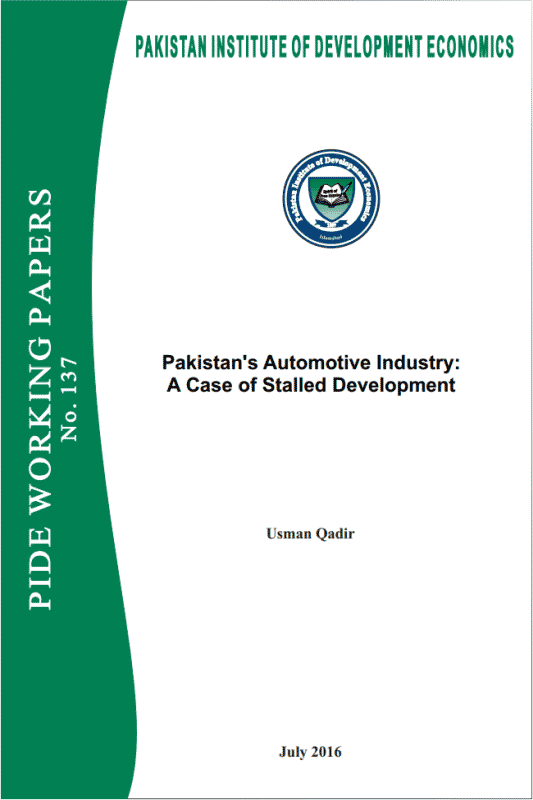Pakistan’s Automotive Industry: A Case of Stalled Development
The gap between developed and developing countries has been growing rather than shrinking, spurring the latter to accelerate their development processes. Rapid industrialisation has been shown to be at the core of numerous economic development efforts time and again. In particular the automotive industry is considered to hold the key to successful development agendas as it has been responsible for rapid transformation of economies. More specifically, the industry is ideally suited to channeling the benefits of technological advances upstream and downstream in an economy. Considering the state of the industrial sector that Pakistan inherited at the time of independence, the automobile industry has grown by leaps and bounds in more than half a century. Considerable growth and capacity was developed in the infant stages when the industry was first set up under government guidance and support, but technological prowess and competitiveness has eluded the industry for the most part. The burning question for development planners in Pakistan is to determine the state of the industry, to identify where success has been achieved and what bottlenecks still exist. This paper aims to review the current state of affairs of the automotive industry in Pakistan, focussing in particular on the development of domestic component manufacturers to tackle this question using industry responses to a survey of 140 component manufacturers. The paper concludes that industry performance is plagued with low levels of productivity and quality; stemming primarily from a lack of new production technology, low quality of raw materials and inadequate training. These bottlenecks will need to be addressed to allow the industry to achieve its full potential and drive development of the domestic economy.




